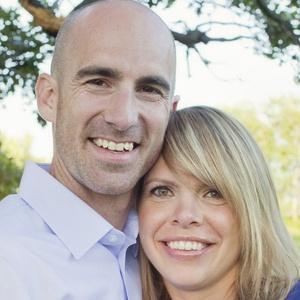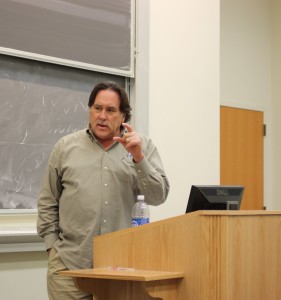In one year, more children will be diagnosed with autism than with childhood cancer, juvenile diabetes and pediatric AIDS combined, according to a statistic from autismspeaks.org.
Events on Monday, March 19 kicked off Autism Awareness Week at the College, a tradition started by senior special education and psychology double major, Alyssa Soohoo, just last year.
In addition to fundraising for Autism N.J., an agency comitted to ensuring safe and fulfilling lives for individuals with autism, “The main purpose of Autism Awareness Week is to spread awareness across TCNJ’s campus,” Soohoo said.

On Monday, a Diagnostic and Statistical Manual of psychiatric disorders panel discussed “What is Autism?,” including signs and symptoms of the neurological disorder.
“A person can qualify for an (Autism Spectrum Disorder) diagnosis by exhibiting at least six of 12 behaviors that include deficits in social interaction, communication, or repetitive behaviors,” stated Jennifer Nolte, a school counselor and adjunct faculty instructor in the Graduate Counseling Program at the College. She also discussed proposed changes to the definition of a person with autism, ultimately changing the criteria for diagnosing ASD.
“The impact (of the new proposal) can result in discrimination against people who are more cognitively capable but still have autism,” Nolte said.
Because of these changes, children who need intervention would not qualify to receive it, which would, in turn, create a multitude of new problems resulting from the lack of care and treatment given to those in need.
In addition, Nolte is also the parent of a child with autism, and her daily struggles are innumerable.
“Daily life with a child who has autism is often challenging and exhausting,” Nolte said. “We have to be with him at all times. He is unaware of many common dangers and needs constant supervision.”
Difficulties also included securing the right and appropriate education for her son. She and her family have spent significant resources in order to convince others of her son’s rights.
Nolte stated that, as a parent, the main goal of Autism Awareness Week is to increase awareness, educate the community and foster advocacy.
“On a positive note,” Nolte said, “We have grown so much as a family thanks to our son. He has taught us more about what is meaningful in life and we are in awe of his hard work and progress every day.”
On Thursday evening NY Times best-selling author David Finch discussed his memoir “Journal of Best Practices: A Memoir of Marriage, Asperger Syndrome, and One Man’s Quest to Be a Better Husband.”
In the early years of their marriage, Finch and his wife struggled with Finch’s growing list of quirks and compulsions, without an explanation of why. However, five years into their marriage, Finch was diagnosed with Asperger Syndrome, explaining many of these quirks.
At the discussion, Finch told the story of how he had seemed different all his life and how his diagnosis changed him for the better.
“When you’re not wired for social interactions and you’re living in a social world, you may have your concerns. But it is possible,” Finch said.

In addition, the audience was inspired by his story and found the lecture intriguing.
“As a future teacher, it was really insightful to hear Asperger Syndrome explained by someone who actually has it,” said Diane Iannacone, freshman history and special education double major. “It’s easier to understand what a person is feeling and how to help them from a first-hand account rather than the definition from a textbook.”
In all, Finch left his audience with a sense of hope, saying a person can live a normal life with Asperger’s — “It just takes love, understanding, guidance and adaptability.”






